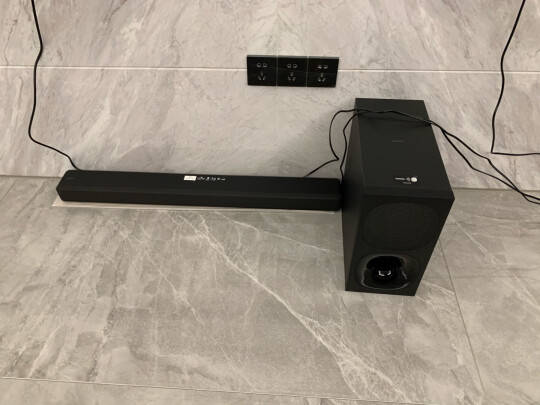# ifndef SEQLIST_H # define SEQLIST_H # include <iostream> # include <memory.h> # include <stdlib.h> # include <string.h> using namespace std;
template < typename T >
class SeqList
{
private :
T * ptr;
int size;
int len = 0 ;
public :
SeqList ( ) : ptr ( nullptr ) , size ( 0 ) , len ( 0 ) { }
SeqList ( T* arr, int n) : size ( n) , len ( n) {
ptr = new T[ n] ;
for ( int i = 0 ; i < n; i++ ) {
ptr[ i] = arr[ i] ;
}
}
SeqList ( const std:: string& str) {
size = str. size ( ) ;
len = size;
ptr = new T[ size] ;
for ( int i = 0 ; i < size; i++ ) {
ptr[ i] = static_cast < T> ( str[ i] - '0' ) ;
}
}
~ SeqList ( ) {
delete [ ] ptr;
}
bool empty ( ) ;
bool full ( ) ;
void push_back ( T e) ;
void show ( ) ;
void insert ( int index) ;
void delete_s ( int index) ;
void pop_back ( ) ;
T get_len ( ) ;
T get_index ( int index) ;
void sort ( bool flag) ;
} ;
# endif # include "SeqList.h" template < typename T >
bool SeqList < T> :: empty ( )
{
return this -> len == 0 ;
}
template < typename T >
bool SeqList < T> :: full ( )
{
return this -> len == this -> size;
}
template < typename T >
void SeqList < T> :: push_back ( T e)
{
if ( this -> full ( ) )
{
cout << "顺序表已满,无法插入!" << endl;
return ;
}
this -> ptr[ len++ ] = e;
}
template < typename T >
void SeqList < T> :: show ( )
{
if ( this -> empty ( ) ) {
cout << "顺序表为空!" << endl;
return ;
}
cout << "当前顺序表中的元素分别是:" ;
for ( int i = 0 ; i < this -> len; i++ )
{
cout << this -> ptr[ i] << " " ;
}
cout << endl;
}
template < typename T >
void SeqList < T> :: insert ( int index)
{
if ( this -> full ( ) )
{
cout << "表已经满了!" << endl;
return ;
}
if ( index > this -> len + 1 || index <= 0 )
{
cout << "插入位置不合理" << endl;
return ;
}
T e;
cout << "请输入插入元素:" ;
cin >> e;
for ( int i = len - 1 ; i >= index - 1 ; i-- )
{
this -> ptr[ i + 1 ] = this -> ptr[ i] ;
}
this -> ptr[ index - 1 ] = e;
this -> len++ ;
}
template < typename T >
void SeqList < T> :: delete_s ( int index)
{
if ( index > this -> len || index <= 0 )
{
cout << "删除位置不合理" << endl;
return ;
}
for ( int i = index; i < this -> len; i++ )
{
this -> ptr[ i - 1 ] = this -> ptr[ i] ;
}
this -> len-- ;
}
template < typename T >
void SeqList < T> :: pop_back ( )
{
if ( this -> len == 0 )
{
cout << "顺序表为空!" << endl;
return ;
}
this -> len-- ;
}
template < typename T >
T SeqList < T> :: get_len ( )
{
return this -> len;
}
template < typename T >
T SeqList < T> :: get_index ( int index)
{
if ( index > this -> len || index <= 0 )
{
cout << "位置不合理" << endl;
return T ( ) ;
}
return this -> ptr[ index - 1 ] ;
}
template < typename T >
void SeqList < T> :: sort ( bool flag)
{
for ( int i = 0 ; i < this -> len - 1 ; i++ )
{
for ( int j = 0 ; j < this -> len - i - 1 ; j++ )
{
if ( ( flag && this -> ptr[ j] > this -> ptr[ j + 1 ] ) || ( ! flag && this -> ptr[ j] < this -> ptr[ j + 1 ] ) )
{
T t = this -> ptr[ j] ;
this -> ptr[ j] = this -> ptr[ j + 1 ] ;
this -> ptr[ j + 1 ] = t;
}
}
}
}
template class SeqList < int > ;
# include "SeqList.h" int main ( )
{
int arr[ ] = { 1 , 2 , 3 , 4 , 5 } ;
SeqList< int > sl ( arr, 5 ) ;
sl. show ( ) ;
int add;
cout << "请输入插入数据的位置:" ;
cin >> add;
sl. insert ( add) ;
sl. show ( ) ;
cout << "请输入删除数据的位置:" ;
cin >> add;
sl. delete_s ( add) ;
sl. show ( ) ;
int c;
cout << "是否尾删(1:YES/2:NO):" ;
cin >> c;
if ( c == 1 ) {
sl. pop_back ( ) ;
}
sl. show ( ) ;
int l = sl. get_len ( ) ;
cout << "顺序表当前长度为:" << l << endl;
int index;
cout << "请输入需要位置:" ;
cin >> index;
cout << index << "位置数据位:" << sl. get_index ( index) << endl;
cout << "将顺序表进行排序(1:升序,0:降序):" ;
cin >> c;
sl. sort ( c) ;
sl. show ( ) ;
return 0 ;
}
# ifndef MYSTACK_H # define MYSTACK_H # include <iostream> using namespace std;
template < typename T >
class My_stack {
private :
struct Node {
T data;
Node* next;
Node ( T value) : data ( value) , next ( nullptr ) { }
} ;
Node* topNode;
int stackSize;
public :
My_stack ( ) ;
My_stack ( const My_stack & other) ;
My_stack& operator = ( const My_stack & other) ;
~ My_stack ( ) ;
T& top ( ) ;
bool empty ( ) const ;
int size ( ) const ;
void push ( T value) ;
void pop ( ) ;
void swap ( My_stack & other) ;
} ;
template < typename T >
void swap ( My_stack< T> & a, My_stack< T> & b) ;
# endif # include "MyStack.h" template < typename T >
My_stack < T> :: My_stack ( ) : topNode ( nullptr ) , stackSize ( 0 ) { }
template < typename T >
My_stack < T> :: My_stack ( const My_stack & other) : topNode ( nullptr ) , stackSize ( 0 ) {
Node* current = other. topNode;
while ( current) {
push ( current-> data) ;
current = current-> next;
}
}
template < typename T >
My_stack< T> & My_stack< T> :: operator = ( const My_stack & other) {
if ( this != & other) {
while ( ! empty ( ) ) {
pop ( ) ;
}
Node* current = other. topNode;
while ( current) {
push ( current-> data) ;
current = current-> next;
}
}
return * this ;
}
template < typename T >
My_stack< T> :: ~ My_stack ( ) {
while ( ! empty ( ) ) {
pop ( ) ;
}
}
template < typename T >
T& My_stack < T> :: top ( ) {
if ( empty ( ) ) {
cout << "栈空!" << endl;
exit ( EXIT_FAILURE) ;
}
return topNode-> data;
}
template < typename T >
bool My_stack < T> :: empty ( ) const {
return stackSize == 0 ;
}
template < typename T >
int My_stack < T> :: size ( ) const {
return stackSize;
}
template < typename T >
void My_stack < T> :: push ( T value) {
Node* newNode = new Node ( value) ;
newNode-> next = topNode;
topNode = newNode;
stackSize++ ;
}
template < typename T >
void My_stack < T> :: pop ( ) {
if ( empty ( ) ) {
cout << "栈空!" << endl;
exit ( EXIT_FAILURE) ;
}
Node* temp = topNode;
topNode = topNode-> next;
delete temp;
stackSize-- ;
}
template < typename T >
void My_stack < T> :: swap ( My_stack & other) {
std:: swap ( topNode, other. topNode) ;
std:: swap ( stackSize, other. stackSize) ;
}
template < typename T >
void swap ( My_stack< T> & a, My_stack< T> & b) {
a. swap ( b) ;
}
template class My_stack < int > ;
template void swap ( My_stack< int > & a, My_stack< int > & b) ;
# include "MyStack.h" int main ( ) {
My_stack< int > s;
s. push ( 9 ) ;
s. push ( 2 ) ;
s. push ( 6 ) ;
s. push ( 7 ) ;
s. push ( 8 ) ;
cout << "栈顶元素:" << s. top ( ) << endl;
cout << "栈的大小:" << s. size ( ) << endl;
s. pop ( ) ;
cout << "栈顶元素:" << s. top ( ) << endl;
My_stack< int > s1;
s1. push ( 1 ) ;
s1. push ( 2 ) ;
My_stack< int > s2;
s2 = s;
swap ( s2, s1) ;
cout << "交换后的栈顶元素:" << s2. top ( ) << endl;
cout << "交换后另一个栈顶元素:" << s1. top ( ) << endl;
return 0 ;
}
# ifndef MYQUEUE_H # define MYQUEUE_H # include <iostream> # include <cstring> using namespace std;
template < typename T >
class Queue {
private :
T* data;
int len;
int size;
int front;
int rear;
public :
Queue ( ) ;
Queue ( const T* d, int size) ;
~ Queue ( ) ;
Queue ( const Queue & other) ;
Queue& operator = ( const Queue & other) ;
T MyFront ( ) ;
T back ( ) ;
bool empty ( ) ;
int MySize ( ) ;
void push ( T e) ;
void emplace ( T e) ;
T pop ( ) ;
void swap ( Queue & other) ;
} ;
# endif # include "MyQueue.h" template < typename T >
Queue < T> :: Queue ( ) : len ( 0 ) , size ( 20 ) , front ( 0 ) , rear ( 0 ) {
data = new T[ size] ;
}
template < typename T >
Queue < T> :: Queue ( const T* d, int size) : len ( strlen ( d) ) , size ( size) , front ( 0 ) , rear ( len) {
data = new T[ size] ;
strcpy ( data, d) ;
}
template < typename T >
Queue< T> :: ~ Queue ( ) {
delete [ ] data;
}
template < typename T >
Queue < T> :: Queue ( const Queue & other) : len ( other. len) , size ( other. size) , front ( other. front) , rear ( other. rear) {
data = new T[ size] ;
strcpy ( data, other. data) ;
}
template < typename T >
Queue< T> & Queue< T> :: operator = ( const Queue & other) {
if ( this != & other) {
delete [ ] data;
len = other. len;
size = other. size;
front = other. front;
rear = other. rear;
data = new T[ size] ;
strcpy ( data, other. data) ;
}
return * this ;
}
template < typename T >
T Queue < T> :: MyFront ( ) {
if ( empty ( ) ) {
cout << "队列为空" << endl;
exit ( EXIT_FAILURE) ;
}
return data[ front] ;
}
template < typename T >
T Queue < T> :: back ( ) {
if ( empty ( ) ) {
cout << "队列为空" << endl;
exit ( EXIT_FAILURE) ;
}
return data[ rear - 1 ] ;
}
template < typename T >
bool Queue < T> :: empty ( ) {
return front == rear && len == 0 ;
}
template < typename T >
int Queue < T> :: MySize ( ) {
return len;
}
template < typename T >
void Queue < T> :: push ( T e) {
if ( len >= size) {
cout << "队列已满" << endl;
return ;
}
data[ rear++ ] = e;
len++ ;
}
template < typename T >
void Queue < T> :: emplace ( T e) {
push ( e) ;
}
template < typename T >
T Queue < T> :: pop ( ) {
if ( empty ( ) ) {
cout << "队列为空" << endl;
exit ( EXIT_FAILURE) ;
}
len-- ;
return data[ front++ ] ;
}
template < typename T >
void Queue < T> :: swap ( Queue & other) {
std:: swap ( len, other. len) ;
std:: swap ( size, other. size) ;
std:: swap ( front, other. front) ;
std:: swap ( rear, other. rear) ;
std:: swap ( data, other. data) ;
}
template class Queue < char > ;
# include "MyQueue.h" int main ( ) {
Queue< char > q ( "hello world" , 20 ) ;
q. emplace ( 'A' ) ;
q. emplace ( 'B' ) ;
q. emplace ( 'C' ) ;
cout << "q队首数据:" << q. MyFront ( ) << endl;
cout << "q队尾数据:" << q. back ( ) << endl;
cout << "q队列数据数量 " << q. MySize ( ) << endl;
cout << "q尾删操作" << endl;
q. pop ( ) ;
cout << "q队首数据:" << q. MyFront ( ) << endl;
Queue< char > q1;
q1 = q;
cout << "q1队首数据:" << q1. MyFront ( ) << endl;
cout << "q1队尾数据:" << q1. back ( ) << endl;
Queue< char > q2 ( "nihao" , 20 ) ;
cout << "交换操作" << endl;
q. swap ( q2) ;
cout << "q队首数据:" << q. MyFront ( ) << endl;
cout << "q队尾数据:" << q. back ( ) << endl;
cout << "q2队首数据:" << q2. MyFront ( ) << endl;
cout << "q2队尾数据:" << q2. back ( ) << endl;
return 0 ;
}




![NSSCTF [HUBUCTF 2022 新生赛]simple_RE(变种base64编码)](https://i-blog.csdnimg.cn/direct/d8800072ce1c4cfe88950888155e482e.png)














